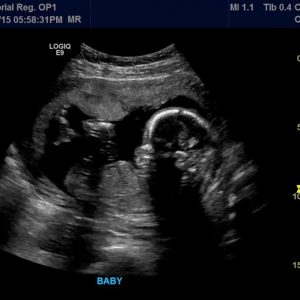
Listeria Outbreak- Let’s Get Educated!
Hey Loves! I hope everyone is having a great week! There has been a lot of media attention on the recent recall of products sold by Blue Bell Creameries and Jeni’s Splendid Ice Creams due to a contamination with listeria monocytogenes. In addition, earlier this month, there was a recall of Sabra hummus also due to a possible contamination with listeria. Although outbreaks are never a positive thing, it does give us the opportunity to have a discussion on the infection caused by listeria and learn how to protect ourselves from being affected by the outbreaks. Let’s get started!
So what exactly is this outbreak? During a sampling conducted by the Blue Bell Creameries, it was revealed that their Chocolate Chip Cookie Dough Ice Cream half gallons produced on March 17, 2015 and March 27, 2015 were contained with Listeria monocytogenes. As a result, on April 20, 2015, they voluntarily recalled all of the company’s products currently on the market made at any of its facilities. CDC recommends that consumers do not eat any Blue Bell brands and retailers do not serve or sell them. There has been a total of 10 cases of infection from listeria reported in the states of Texas, Oklahoma, Kansas, and Arizona, 3 of which have resulted in death.
What is listeria? Listeria is a bacteria found in soil, water, and some animals, commonly poultry and cattle. It can be present in raw milk and foods made from raw milk. It can also live in food processing plants and contaminate a variety of processed meats. Unlike other germs, it can grow even in cold temperatures. Therefore, even refrigerated or frozen items are at risk for contamination. It is killed during the processes of cooking and pasteurization. Although listeria is rare, it is still considered the third-ranking cause of death from food poisoning in the United States.
What are common sources? It can be found in ready-to-eat deli meats, hot dogs, unpasteurized (raw) milk and dairy products, refrigerated smoked seafoods or meat spreads, soft cheeses made with unpasteurized milk (feta, brie, camembert, queso fresco), and raw sprout.
What are the symptoms ? The symptoms include fever, weakness, vomiting, diarrhea, stiff neck, and confusion. It can lead to the development of brain abscess and death. The incubation period can range from 3-70 days so please be aware of these symptoms if your child has recently consumed any of the Blue Bell or Jeni’s products. The symptoms usually resolve within a week.
Who is at high risk? People at high risk for listeriosis include pregnant women and their newborns, adults 65 and older, and people with weakened immune systems. Pregnant women are 20 times more likely to be infected by listeria than an otherwise healthy adult. In addition, listeriosis leads to miscarriages, stillborns, or life-long health problems for the infant. If you are pregnant, consumed Blue Bell products, and start to experience mild flu-like symptoms, contact your doctor immediately. If your child has a weakened immune system and has had these products, please make sure to be on the lookout for the symptoms described above.
Can it be treated ? Yes. If diagnosed, it can be treated with IV antibiotics. So again, if you or your child has had these products or is experiencing these symptoms please contact your doctor immediately.
How can I prevent infection with listeria?
- Make sure foods such as beef, pork, or poultry are cooked thoroughly.
- Keep uncooked meats separate from vegetables and from cooked foods and ready-to-eat foods.
- Wash hands, knives, and cutting boards after handling uncooked foods.
- Wash raw vegetables thoroughly before eating.
- Avoid unpasteurized (raw) milk or foods made from unpasteurized milk.
- Consume perishable and ready-to-eat foods as soon as possible.
Should I be worried if I ate a recalled product and what should I do if I have? The chance of developing listeriosis, even after ingestion of a contaminated product, is very small. The CDC recommends that if you don’t have symptoms, you do not need to be tested. If you are considered high risk, you should be tested immediately only if you start to develop symptoms.
Hope you enjoyed the read and feel a little more educated on listeria! See you next Wednesday!
Resources:
www.medicinenet.com/listeria/article.htm#listeriosis_listeria_monocytogenes_infection_facts
http://www.foodsafety.gov/poisoning/causes/bacteriaviruses/listeria/
http://www.cdc.gov/listeria/pdf/bluebell-listeria-outbreak-infographic-508c.pdf




